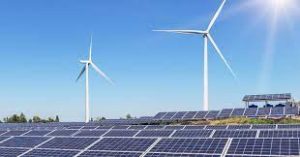Image: energia.gr
Written by Anastasios Vogiatzis, head of accounting at Wattcrop.
2022 had a dramatic impact on the energy sources mix. The signs of growing interest in clean energy were apparent from the previous years but it was the war in Ukraine that accelerated global concern for finding alternative sources of energy. Natural gas which in the past decade was considered the cleanest and cheapest source is losing a lot of its supporters.

The trend now is renewables, solar, wind, and hydropower. The price of Natural Gas is constantly increasing. Less apparent, but equally important the new technological advancement has made the cost to invest in wind and solar energy significantly drop. Fossil fuels are now considered a luxury and even more critically non-sustainable.
These reasons create new opportunities for investors. Climate change is becoming a great concern for all countries. And even though governments` initiatives are starting to make progress the pace is still very slow. This leaves a lot of space for the private sector to begin analyzing investment opportunities.
Of course, it is not as easy as it sounds. Most countries are in the early stage of this transition. This means that there are a lot of obstacles to the private sector`s investment, especially in developing countries. One of them is the lack of appropriate infrastructure for these investments to be based on. Another is that the government’s regulations instead of accelerating things and proper control procedures, mostly have the role of slowing down and even stopping ambitious projects.
For clean energy transitions to be successful, institutional investors, corporates, and governments must increase funding for renewable infrastructure globally, particularly in emerging and developing economies. Both renewables and broader infrastructure unlisted assets provide diversification benefits during credit events and against cyclical changes in macroeconomic conditions, such as commodity prices.
Despite these risks and limitations, the opportunity exists for investors and governments to partner and de-risk early-stage financing for renewable infrastructure, which is needed to build momentum in a very promising and developing investment sector.

